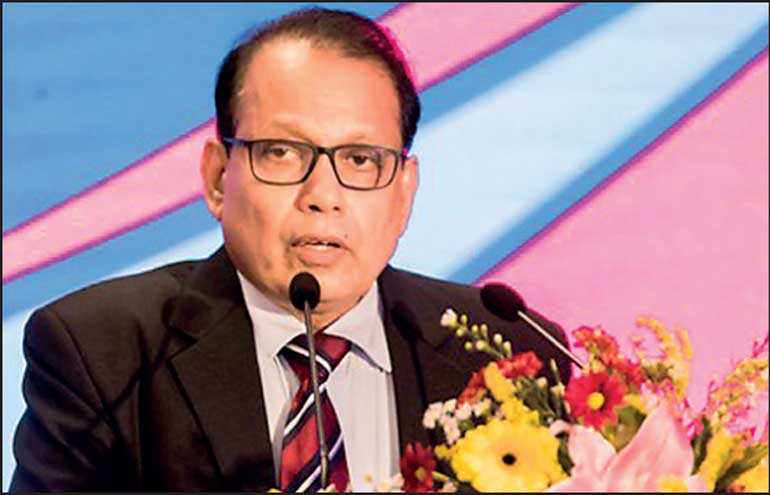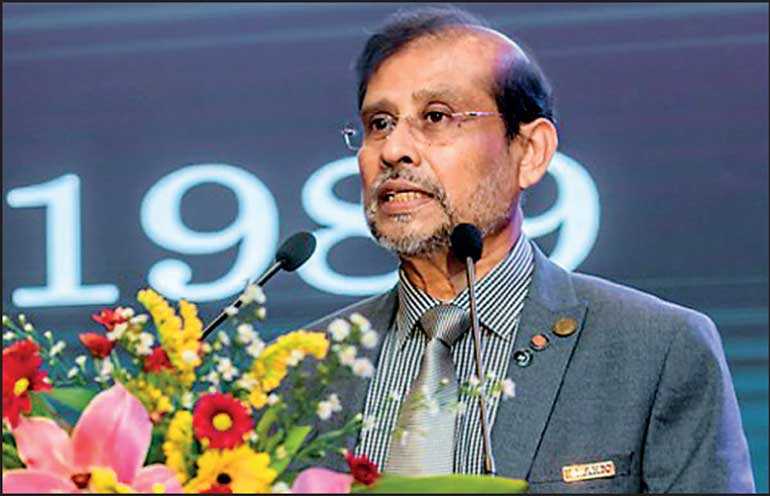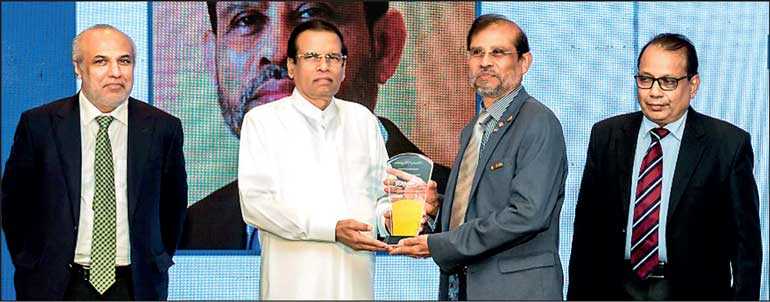Thursday Feb 19, 2026
Thursday Feb 19, 2026
Tuesday, 26 November 2019 00:00 - - {{hitsCtrl.values.hits}}





LEARN, Sri Lanka’s National Research and Education Network marked three decades of innovation in connectivity, heralding a new era of connectivity whilst supporting the needs of the research and education community through a high-speed backbone network.
At an event held at the Shangri-La hotel in Colombo, former President Maithripala Sirisena graced the momentous occasion signalling the appreciation and acknowledgement of the dedicated and unmatched innovation in service offered by LEARN.
The Lanka Education and Research Network is the NREN (National Research and Education Network) of Sri Lanka, which interconnects Educational and Research institutions across the country, and provides network-related services to them.
LEARN Founder Prof. Abhaya Induruwa said: “LEARN was the first IP based WAN in the country. It was conceptualised to empower researchers and our students to embrace the benefits of ICT, promote research within the country, and facilitate knowledge sharing with their peers across the world. Despite the challenges, in 1995, LEARN went live. In a time before Facebook, WhatsApp, and other technologies, this was a monumental feat.”
LEARN offers connectivity to 45 educational and research institutions and has a total bandwidth of 20Gbps. A far cry from the 64kbps connection utilised to connect just three universities in 1995. However, as the requirements of the research community evolved, the network evolved as well.
The organisation tackles challenges closer to home, such as the poor integration of technology in education. It identified that many previous approaches to introduce technology into classrooms were highly technical. This halted many initiatives as teachers simply did not possess the required level of technical skills. Hence, as the local NREN, it’s working to develop simple technological tools for teachers to utilise in classrooms.
Recognising these evolving needs, alongside connectivity, LEARN offers a host of services to local research and educational institutes. These services include video conferencing facilities, Voice of IP (VoIP) connectivity, Federated Identity Access, an international education roaming service (aka eduroam), and a Technical Assistance Center offering engineering support to its member institutes. Beyond these services, the organisation has formed strong partnerships to support local researchers. Through its partnership with eduroam LEARN offers its international WiFi-roaming service. Similarly, the organisation has partnered with regional and international research bodies such as Trans Eurasia Information Network (TEIN), Asi@Connect, the National Knowledge Network (NKN) of India, SingAREN, and many more. These partnerships have given local researchers access to networks connecting international educational and research institutes. Through these networks, local researchers have greater access to a global pool of knowledge and can better collaborate with their international counterparts to bring about innovation. For such purposes, the LEARN network offers dedicated 3Gbps of connectivity to these international academic networks.
Over the past three decades, LEARN has played an integral role behind the scenes to connect local researchers with the rest of the world. However, the network was born at a time when internet access in Sri Lanka was virtually non-existent.